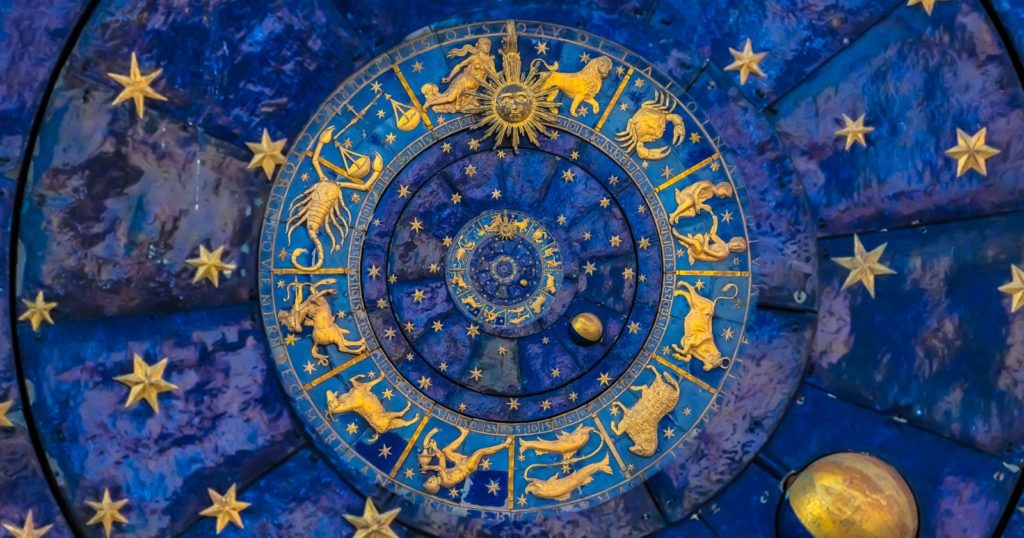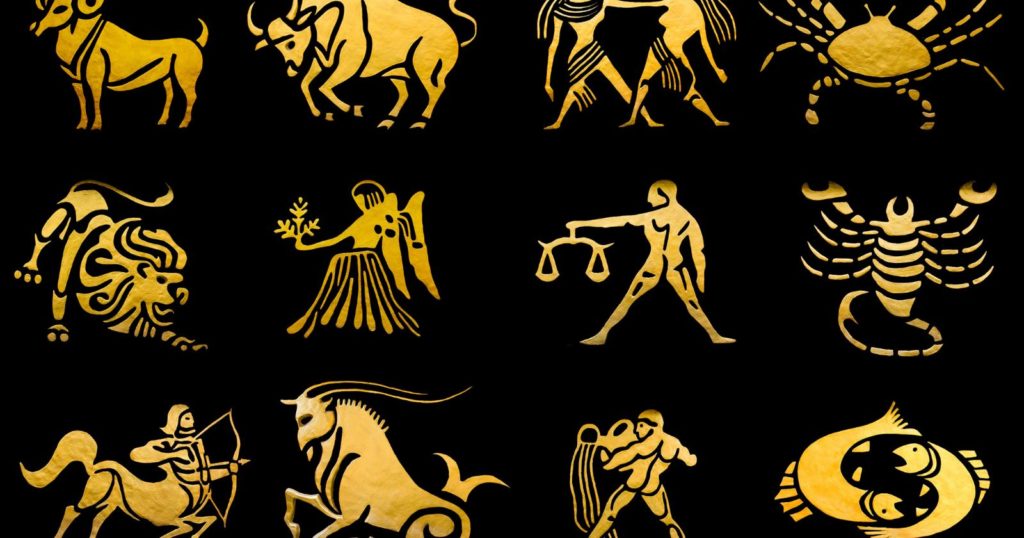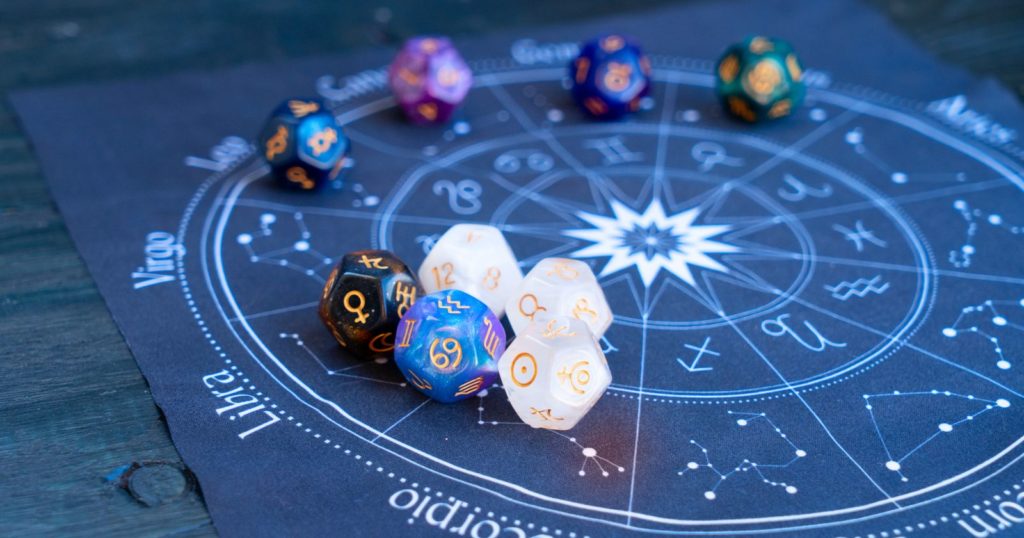Introduction: Unveiling the Unknown
Astrology has always been a subject of mystery and allure. It opens a doorway to a mystical universe that’s been an intrinsic part of human history, culture, and psychology. The practice is widely recognized for its twelve zodiac signs, corresponding to the twelve divisions of the sky. However, the question often arises, “how many zodiac signs are there?” The conventional wisdom tells us the answer is twelve. But what if I told you there’s another player in the game? Welcome to your 13-Zodiac Sign guidebook. Let’s embark on an enlightening journey to unmask the extra sign that challenges the norm.
The Accepted Truth: The Twelve Zodiac Signs
Before we reveal the thirteenth sign, let’s revisit the commonly recognized twelve zodiac signs. This segment aims to refresh your memory, but it’s also for those who are newly venturing into the cosmic world of astrology.
Astrology divides the sky into twelve equal parts, each corresponding to a specific period of the year. These periods align with the sun’s apparent path, the ecliptic, and the twelve divisions are the basis for our twelve zodiac signs: Aries, Taurus, Gemini, Cancer, Leo, Virgo, Libra, Scorpio, Sagittarius, Capricorn, Aquarius, and Pisces. Each sign, governed by a ruling planet, has a unique personality profile, affecting traits, behaviors, and destinies. This cosmic arrangement is an integral part of astrology and forms the foundation of horoscopes.
Our twelve zodiac signs originate from Babylonian astrology, passed down through generations and have deeply embedded themselves in our society. They influence our behaviors, our relationships, and in many ways, our understanding of ourselves. Each sign, with its unique characteristics and compatibility with other signs, builds a complex web of human psychology and destiny. From fierce Aries to emotional Cancer, practical Virgo to free-spirited Sagittarius, each sign contributes to the colorful spectrum of human personalities.
The zodiac signs also serve a symbolic function in our lives. They act as spiritual guides, helping individuals navigate through the turbulent waters of existence. For instance, Leo, symbolized by the lion, represents courage, authority, and resilience. These characteristics can inspire Leos to take charge of their lives, leading with an unwavering spirit. Similarly, the Gemini sign symbolizes adaptability, flexibility, and a duality of nature, guiding Geminis to be versatile and open-minded in their life approach.
This wisdom of the twelve signs has been acknowledged by many over the centuries. However, modern astronomy and a deeper exploration into ancient astrology propose a different narrative, adding a thirteenth zodiac to the circle. The plot thickens as we approach this lesser-known zodiac sign – Ophiuchus.
The Unseen Player: Ophiuchus, The 13th Zodiac
When astronomers from the Minnesota Planetarium Society re-evaluated the ancient Babylonian zodiac, they discovered that due to the Earth’s wobble on its axis, a shift occurred over the centuries. This shift created space for a thirteenth constellation along the ecliptic, Ophiuchus (pronounced Oh-FEW-kus), which was excluded by the Babylonians due to their preference for a 12-month calendar. Unveiling Ophiuchus challenges the established system and adds a new dimension to our understanding of astrology.
Ophiuchus, often depicted as a man holding a serpent, lies between Scorpius to the west and Sagittarius to the east. It is visible during northern summer and autumn evenings. If you were born between November 29 and December 17, according to the new system, you belong to this thirteenth zodiac sign.
The introduction of Ophiuchus into the zodiacal circle shakes the core of astrology as we know it. From changing zodiac sign identities for millions to creating a ripple effect on horoscopes, the impact is substantial. People who considered themselves Sagittarius for their entire lives suddenly find themselves under Ophiuchus, leading to a reevaluation of their personal and spiritual identities. This shift has sparked a heated debate in the astrological community about the validity and acceptance of this thirteenth sign.
The Ophiuchus Controversy: Tradition Versus Science
The introduction of Ophiuchus as the 13th zodiac sign has stirred a hornet’s nest among astrologers and astrology enthusiasts. On one hand, traditional astrologers advocate sticking to the twelve signs, keeping with ancient practices and beliefs. The reason they give is that astrology is not only about the constellations but also about the four elements (fire, earth, air, water) and their triplicities, which balance with the twelve signs.
On the other hand, astronomers argue that considering Ophiuchus makes the zodiac more astronomically accurate. The modern argument cites the precession of the equinoxes, a phenomenon where Earth’s axial tilt changes over thousands of years. As a result, the sun’s path shifts, allowing it to pass through Ophiuchus’ region of the sky. Thus, they propose that the zodiac system should be updated to reflect this shift.
The Ophiuchus debate is a classic confrontation between tradition and science. While the former emphasizes the symbolic and spiritual significance of the twelve zodiac signs, the latter calls for an update that aligns with the observable universe. The difference in perspective depends on whether one views astrology as a static historical system or as a practice that should evolve with astronomical discoveries.
Characteristics of Ophiuchus: Who Are The Serpent Bearers?
If you were born between November 29 and December 17 and intrigued about the traits associated with Ophiuchus, you’re in for an interesting revelation. According to astrologers who embrace the concept of a 13th sign, Ophiuchus individuals are often described as seekers of wisdom and knowledge. They are characterized as curious, passionate, and driven by an inherent desire to uncover life’s mysteries, resonating with the symbol of the ‘Serpent Bearer’ and its association with healing and enlightenment.
Ophiuchans are thought to be imaginative and ambitious, often reaching for the stars in their quest for success. They are said to possess an inherent thirst for knowledge, constantly pushing boundaries and questioning the world around them. Their inherent charisma and vibrant energy make them natural leaders who can inspire and captivate those around them.
Additionally, Ophiuchans are perceived as humanitarians at heart, often engaging in causes that serve humanity. Their empathetic nature and compassionate disposition drive them to strive for a world where justice and equality prevail.
But, of course, no zodiac sign is without its flaws. Ophiuchans can be procrastinators, often delaying tasks until the last minute. Their drive for success can sometimes border on obsession, leading to burnout and mental stress. Balancing their ambitious nature with a need for relaxation is a challenge that many Ophiuchans face.
Remember, these traits are not definitive and will resonate differently with different individuals. The zodiac, be it twelve or thirteen signs, provides a framework for understanding personality traits and tendencies but does not determine them.
What Does This Mean For You: Navigating Your New Zodiac
The inclusion of a 13th zodiac sign undoubtedly creates a stir in the established order of things, with many individuals finding their zodiac identity shifted. If you find yourself under the new sign, it’s a moment of personal exploration and introspection. You might be revisiting the traits you have identified with and discovering a new set of characteristics that may align with your personality.
However, it’s essential to understand that zodiac signs are guidance tools. They are aids in exploring your inner world and the tendencies that make you unique. Whether you identify with your new zodiac sign or choose to stick with your old one, the choice is deeply personal. At the end of the day, it’s about what resonates with you and helps you navigate your life journey.
The controversy surrounding Ophiuchus provides an opportunity to expand our understanding of astrology and reflect on our personal beliefs. It invites us to consider the role that astrology plays in our lives and what we seek from it. Whether we embrace the 13th zodiac sign or stick to the traditional twelve, it’s an exciting exploration of our celestial connection and personal identity.
Conclusion: The Mysteries of the Zodiac Universe
The world of astrology offers an exhilarating journey through the cosmos, one that has enthralled humanity for centuries. As we orbit around the sun, the stars and planets around us seem to sketch stories in the sky – tales that have become integral to our cultural fabric in the form of the zodiac. The traditional twelve zodiac signs have served as spiritual guides, providing us with a sense of identity and a tool for self-discovery. Yet, the potential inclusion of a thirteenth zodiac, Ophiuchus, has nudged us to reevaluate our understanding of this celestial language.
This unseen player’s introduction in the cosmic game encourages us to question, explore, and stretch the boundaries of our knowledge. It reminds us that astrology, like other aspects of human understanding, is subject to evolution and reinterpretation. Tradition and science dance in this space, creating a dynamic ballet of perspectives that further enrich our experience of the cosmos.
The Ophiuchus controversy also highlights an important aspect of astrology. While our zodiac sign can provide a fascinating framework for understanding our personality traits, behaviors, and inclinations, it’s crucial to remember that we are more than just our signs. Our individuality transcends celestial categorization. The zodiac can guide us, but it doesn’t confine us. It helps us navigate through our life’s journey but doesn’t command the course.
Ophiuchus, the Serpent Bearer, beckons us to embrace both the known and the unknown in our astrological explorations. Whether you identify with this new sign, stick to your original one, or choose to observe from the sidelines, the unfolding conversation adds another layer to the already complex and mesmerizing field of astrology.
As we delve deeper into the starlit mysteries of our universe, the question “how many zodiac signs are there?” continues to evoke wonder, spark debate, and inspire a relentless quest for knowledge. At its core, the zodiac’s beauty lies not in the number of signs it houses, but in its symbolic representation of the human journey through life – the shared experiences, the diverse personalities, and the infinite possibilities.
So, whether we’re talking about twelve or thirteen zodiac signs, the real magic of astrology lies in its ability to connect us – to ourselves, to each other, and to the vast cosmos that we are a part of. In the grand cosmic dance, we all have our unique steps. Let’s continue to explore, learn, and embrace the mysteries of our celestial choreography, one zodiac sign at a time.
Resources:
- “The Secret Language of Birthdays” by Gary Goldschneider
- “Astrology for the Soul” by Jan Spiller
- “Cosmos and Psyche” by Richard Tarnas




